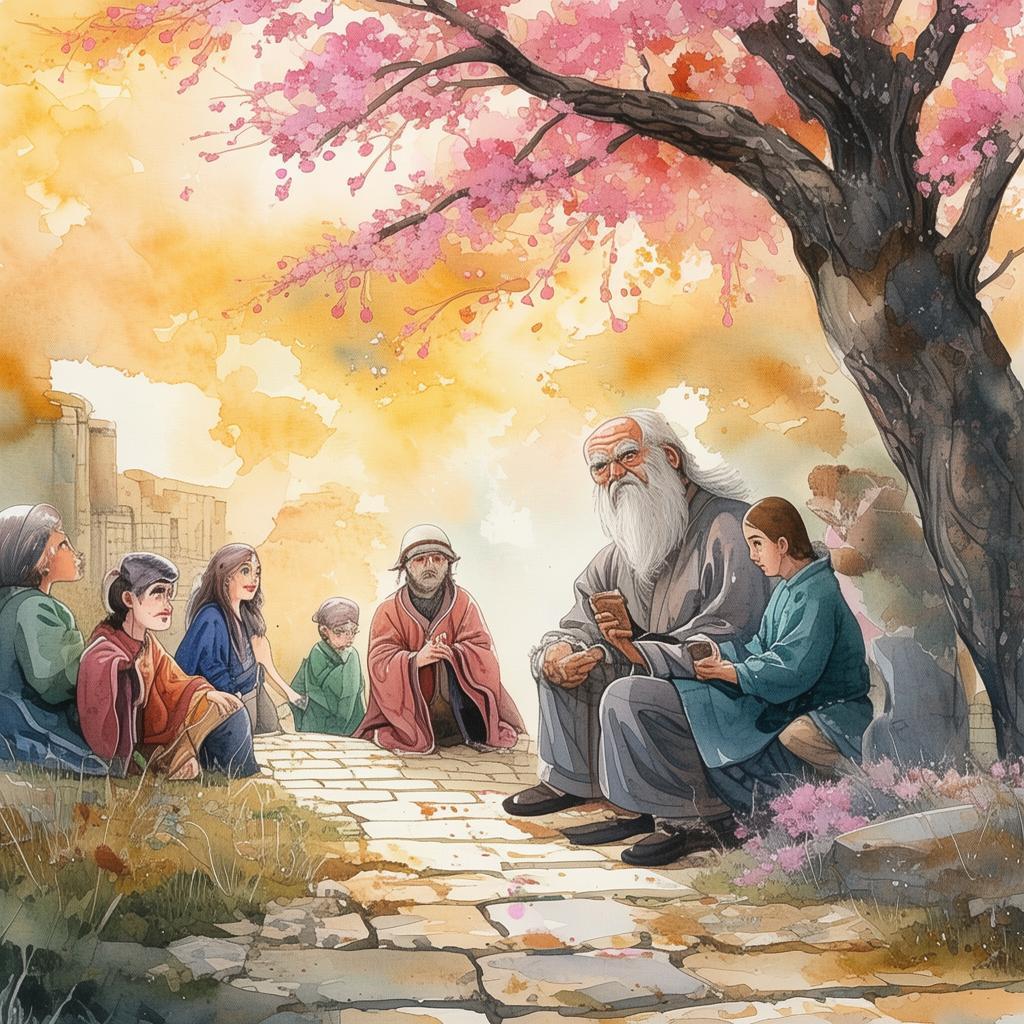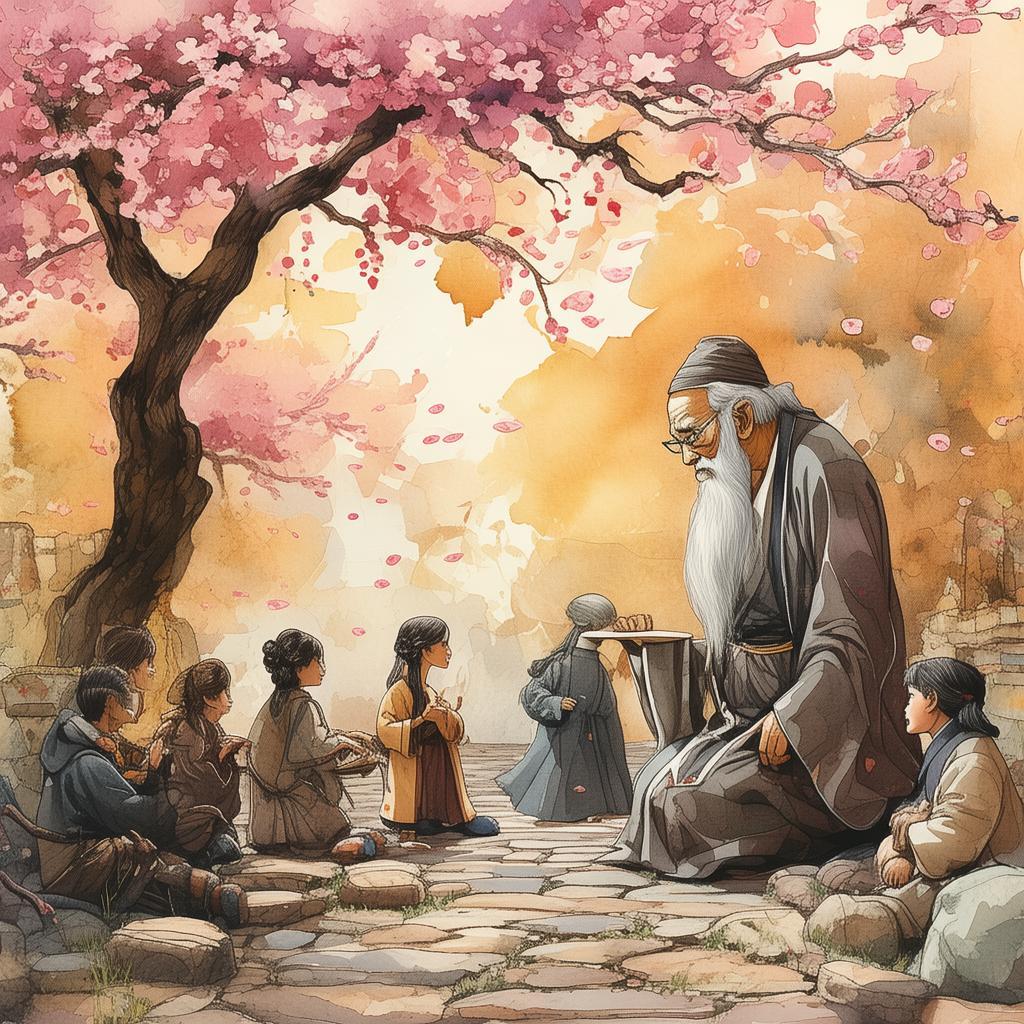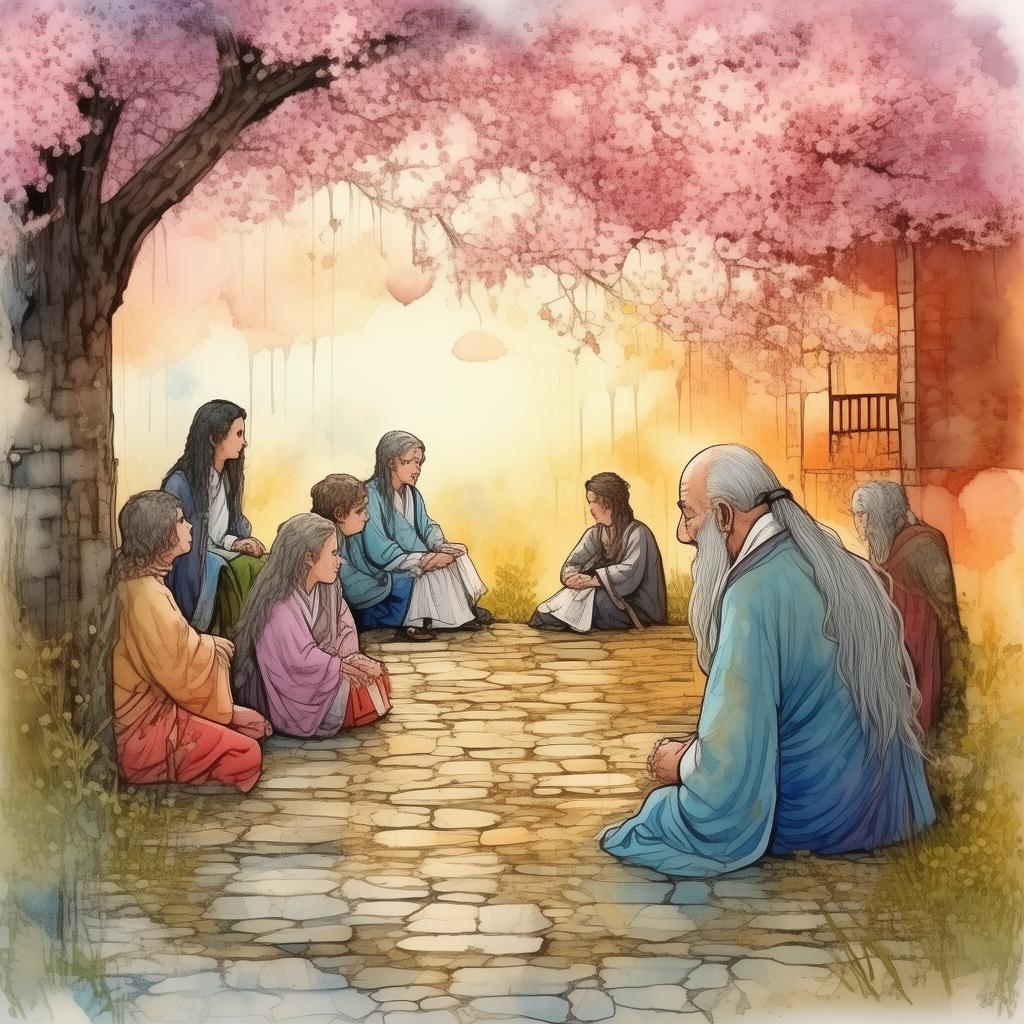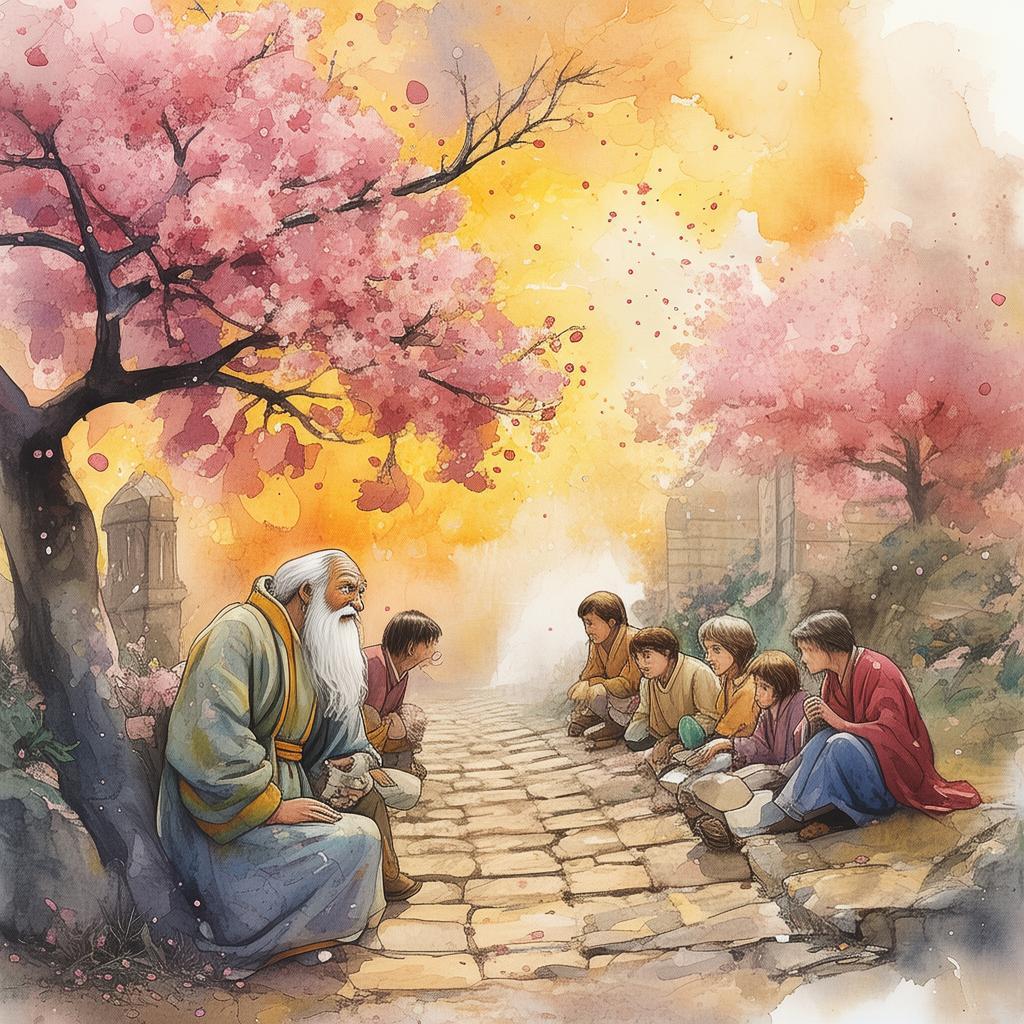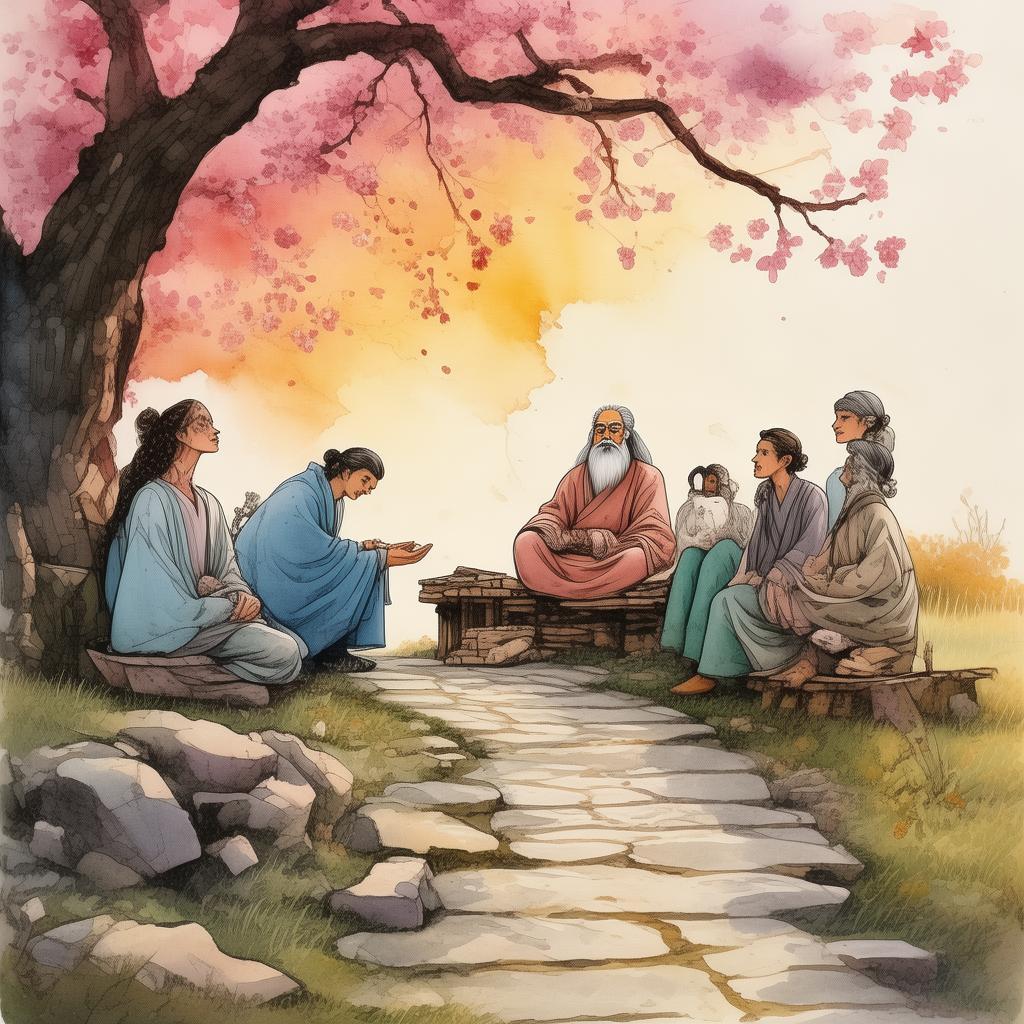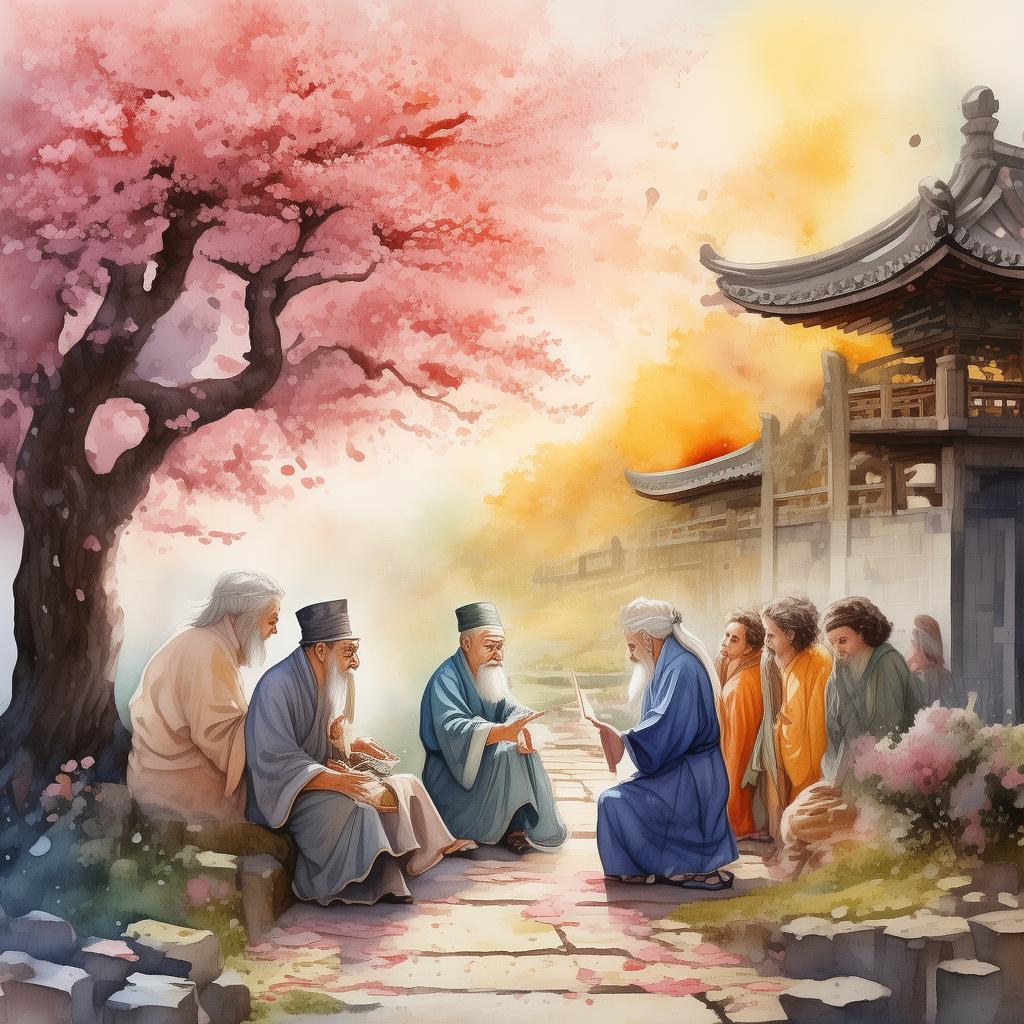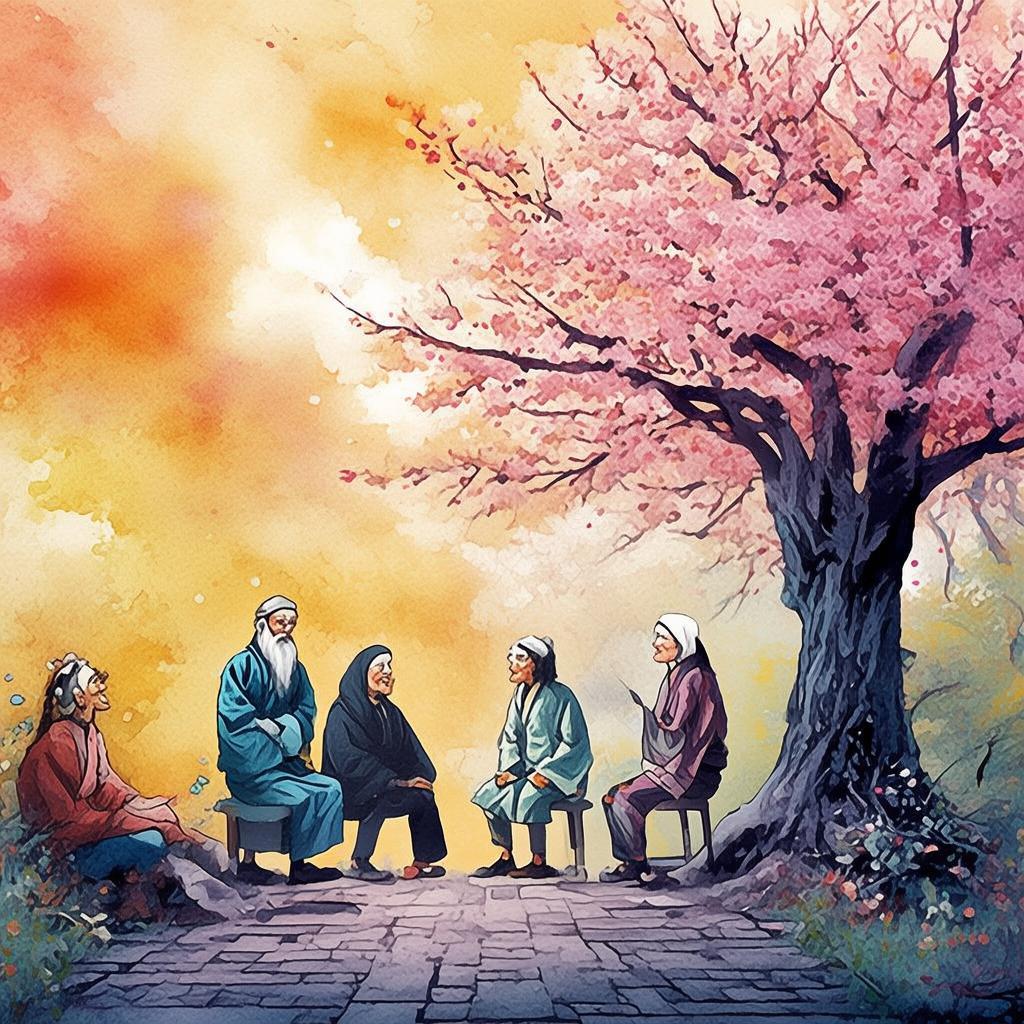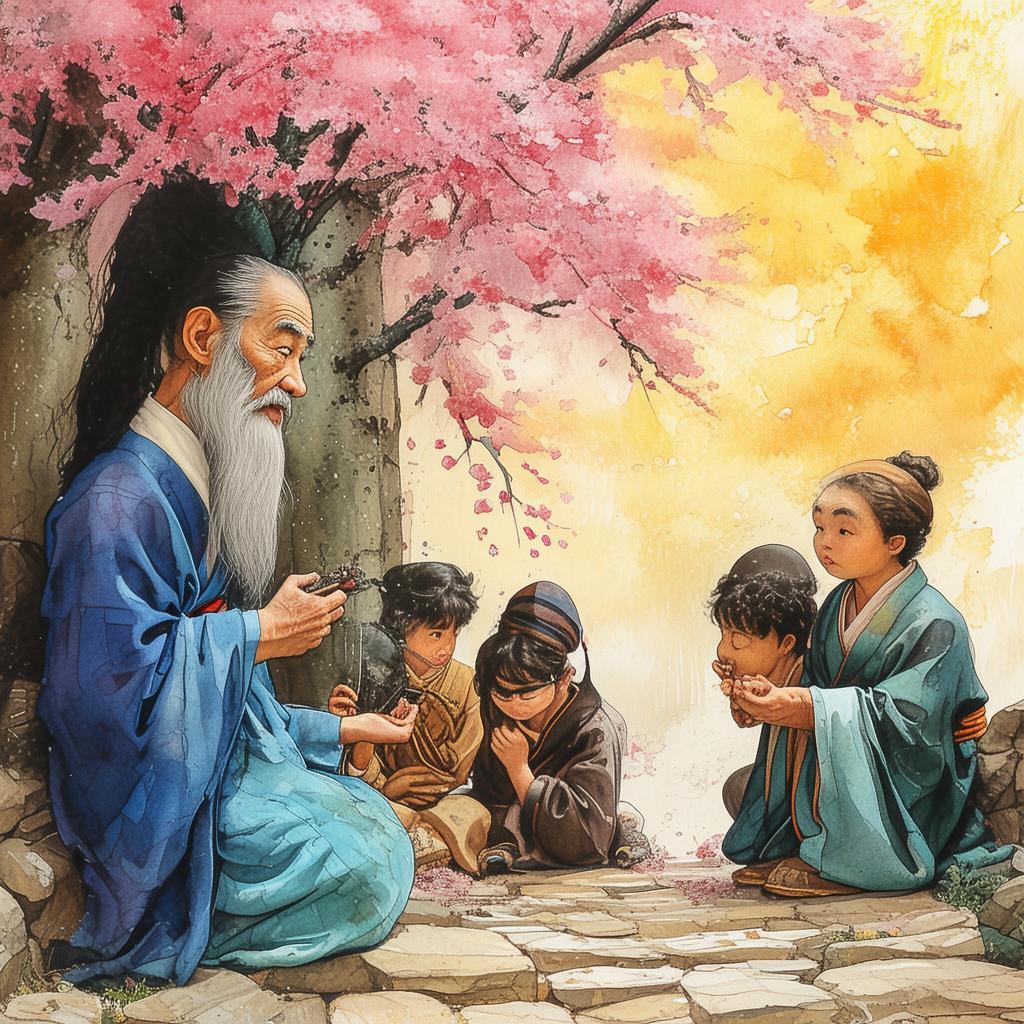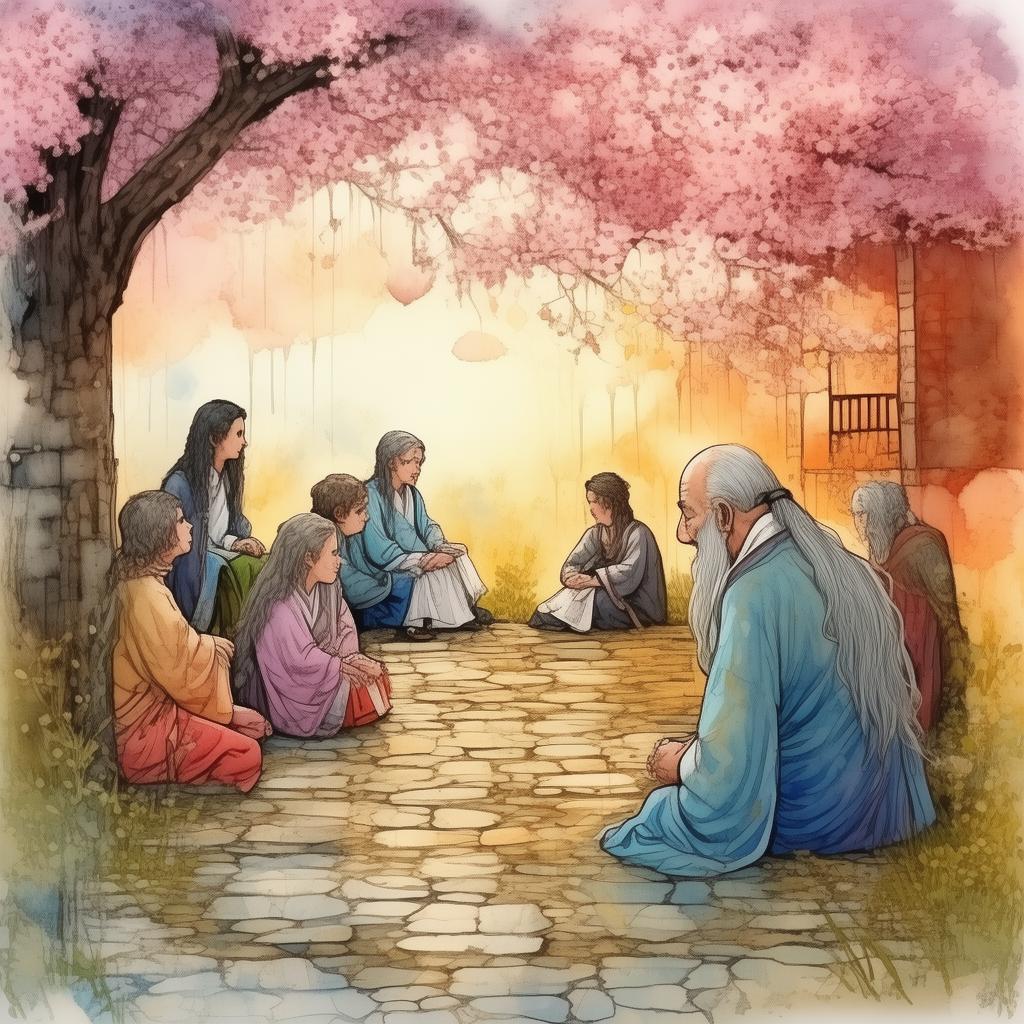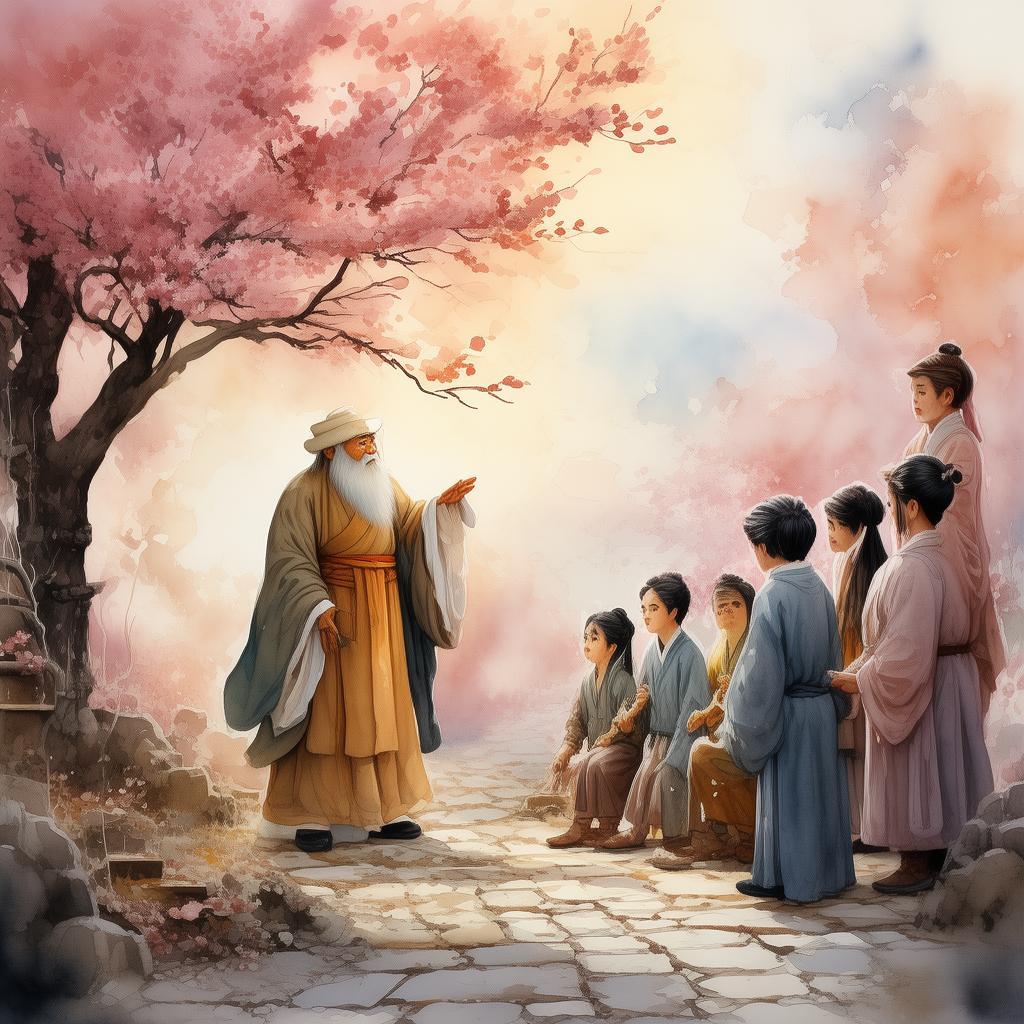The Quantum Whisper: The Paradox of a Joke
In the heart of the bustling city of Shanghai, amidst the symphony of honking cars and the cacophony of urban life, there existed a quiet, secluded laboratory that was the sanctuary of Dr. Li Qian, a brilliant physicist known for his unconventional approach to scientific inquiry. Dr. Qian was not the typical scientist, one might say he was an artist with atoms as his brush. His theories often danced on the edge of plausibility, sometimes even slipping into the realm of the absurd.
One evening, as Dr. Qian was lost in thought amidst a sea of equations and diagrams, his assistant, Xiao Mei, brought him a cup of tea. She watched as the old man, his eyes reflecting the flickering candlelight, began to hum a tune that seemed to resonate with the very air around him. It was a melody that carried the echoes of an ancient Chinese joke:
"A man walks into a bar, orders a glass of water, and says, 'Make it wet.' The bartender laughs and says, 'I knew you were a scientist.'"
The joke had always been a staple of Xiao Mei's family, a humorous anecdote that passed through generations. Little did she know that this seemingly trivial piece of humor would soon change the course of her life and that of her mentor.
Dr. Qian's brow furrowed in contemplation. He had often pondered the nature of existence, the enigma of the quantum world, and the very essence of reality itself. The joke's absurdity intrigued him, and as he mulled over the punchline, a spark of inspiration ignited within him.
"Xiao Mei," he said, his voice barely above a whisper, "what if the universe is not just the sum of our observations, but is also shaped by our expectations? What if the joke itself is not just a piece of humor, but a key to unlocking the deepest secrets of the quantum realm?"
Xiao Mei's eyes widened in surprise. "But Dr. Qian, that sounds like something out of a science fiction novel!"
"Not necessarily," Dr. Qian replied, his fingers tracing patterns in the steam of his tea. "Consider the double-slit experiment. When we observe the particles, they behave like particles. But when we don't observe them, they behave like waves. What if the same principle applies to our expectations? What if the joke is a quantum quip?"
The assistant's mind raced as she tried to comprehend the implications of Dr. Qian's theory. She could see the potential of such a discovery, but also the risks. If the universe was as malleable as the punchline of a joke, then what would become of the very fabric of reality?
Dr. Qian, unfazed by the magnitude of the implications, began to experiment. He used the bar as a metaphor for the universe, with the water representing the fundamental building blocks of reality. He conducted his experiments in the quiet of his laboratory, using photons and particles as his subjects, trying to prove his theory that the universe was influenced by our expectations, just as the joke suggested.
Weeks turned into months, and the laboratory became a place of both excitement and apprehension. Xiao Mei watched as Dr. Qian became more and more obsessed with his theory, his eyes often darting to the sky, as if expecting the universe to respond to his whims.
One night, as Xiao Mei was tidying up the lab, she noticed something extraordinary. The quantum particles were behaving not as expected, not as particles, not as waves, but as... water. The particles were interacting with each other, creating patterns that mirrored the image of a glass of water. It was as if the universe itself had become a joke, and the punchline was now a reality.
Dr. Qian, upon discovering the phenomenon, could hardly contain his excitement. "Xiao Mei, look at this! It's the universe at play, just as the joke suggested!"
Xiao Mei nodded, tears of joy and amazement welling up in her eyes. "Dr. Qian, this is incredible. But what does it mean for the world?"
Dr. Qian smiled, a rare expression of contentment crossing his face. "It means that our reality is not as fixed as we think. It means that we have the power to shape it, just as the joke shaped the water in the bar. We are not just observers, but participants in the grand joke of the universe."
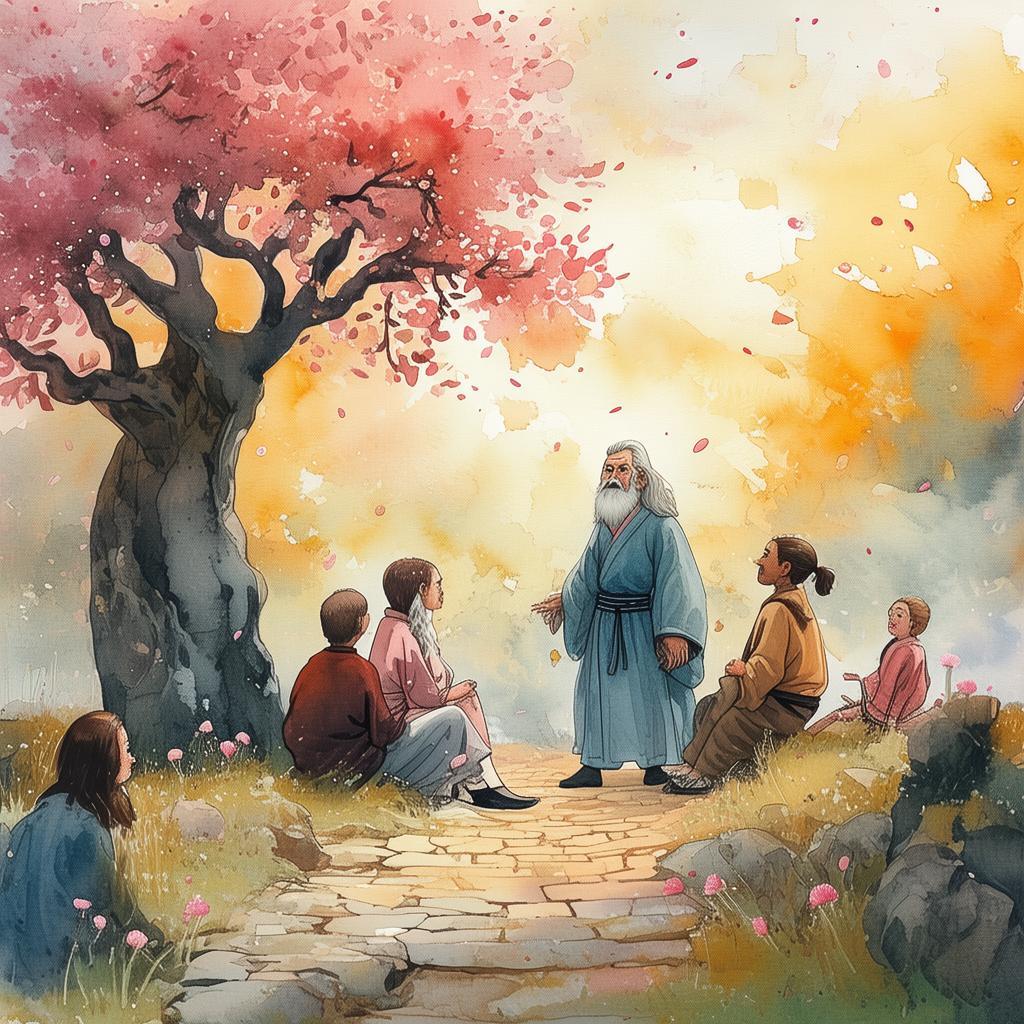
As word of their discovery spread, the scientific community was abuzz with debate and intrigue. Some hailed Dr. Qian and Xiao Mei as geniuses, while others dismissed their theory as the ramblings of a mad scientist. The world was divided, much like the double-slit experiment, into two distinct camps: those who believed in the reality-shaping power of expectation, and those who remained steadfast in the belief that the universe was as immutable as the laws of physics.
Dr. Qian, however, remained unswayed by the controversy. He had found his truth, and it was a truth that was both beautiful and terrifying. The universe, he had come to believe, was a vast, ever-changing sea of probabilities, shaped by the whims of its inhabitants, each a participant in the grandest of jokes.
As the story of Dr. Qian and Xiao Mei's discovery spread, it sparked a new era of scientific inquiry, one that was not bound by the strictures of conventional wisdom but instead embraced the possibilities of the absurd. The world, in a way, had become a stage, and each person a character in the play, performing their part in the grandest of all jokes.
✨ Original Statement ✨
All articles published on this website (including but not limited to text, images, videos, and other content) are original or authorized for reposting and are protected by relevant laws. Without the explicit written permission of this website, no individual or organization may copy, modify, repost, or use the content for commercial purposes.
If you need to quote or cooperate, please contact this site for authorization. We reserve the right to pursue legal responsibility for any unauthorized use.
Hereby declared.
